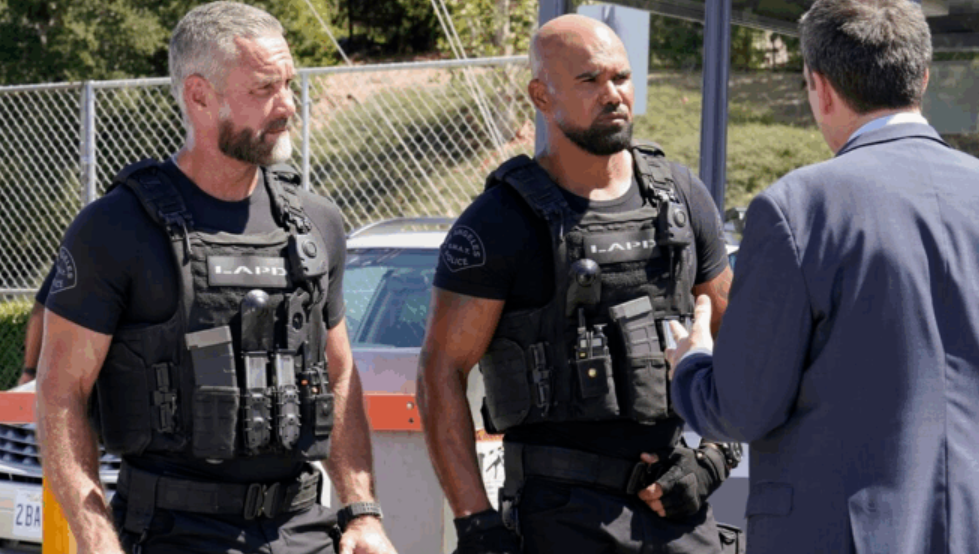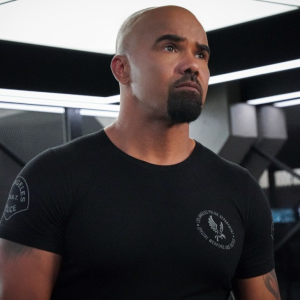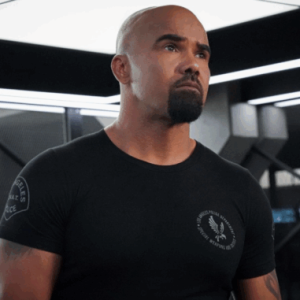The recent news that the hit CBS drama S.W.A.T. has been canceled—for a second time—has sent shockwaves through its dedicated fanbase and left many feeling blindsided. This is not an unfamiliar scenario for the series, which was previously resurrected from cancellation in 2023. Yet, despite consistently strong ratings, a remarkably loyal following, and a storyline lauded for its social consciousness, the show has once again been axed, with Season 7 officially marked as its end. In the wake of this decision, Shemar Moore, the charismatic lead of the series, has not minced words, offering a candid and fiery critique of the forces at play.
The paradox of S.W.A.T.’s demise lies in its proven success. The series consistently performed well in its demanding time slot, often outperforming shows that ultimately secured renewals. Beyond linear television, it boasted a significant social media presence and robust global syndication appeal, demonstrating its widespread reach and popularity. Such metrics typically serve as a network’s green light for continued investment, making the decision to pull the plug perplexing to outsiders. However, Moore’s outspoken reaction suggests that the reasons are far from performance-based, pointing instead to the opaque and often ruthless realities of corporate television.
Moore responded swiftly and unequivocally to the cancellation via an Instagram video that quickly went viral, resonating deeply with fans and industry observers alike. His message was stark: “We’ve done everything you asked—great ratings, representation, community stories—but still, we get canceled. This ain’t about the fans. It’s about money, optics, politics.” This powerful statement laid bare the frustrations felt by many involved in successful shows that fall victim to unseen forces. Moore’s words highlighted a stark disconnect between artistic merit, audience engagement, and the cold calculations of network executives.

Central to Moore’s impassioned plea was the show’s undeniable commitment to representation. S.W.A.T. stood out as one of the few network dramas led by a Black actor, and its ensemble cast reflected a vibrant mosaic of cultures and backgrounds. The series consistently delved into nuanced community stories, addressing contemporary social issues with sensitivity and depth. Moore powerfully articulated, “You want diversity? You want change? We gave it to you—and now we’re expendable?” His frustration underscored the often-empty promises of diversity initiatives when confronted with bottom-line pressures. For Moore, who has frequently spoken about the unique pressures and responsibilities of being one of the few Black male leads on network television, S.W.A.T. was more than just a procedural cop show; it was a platform making a significant statement about contemporary society, law enforcement, and community relations. It showcased a multi-layered team, exploring the complexities of modern policing through a lens of empathy and realism, often spotlighting issues affecting marginalized communities.
The cancellation of S.W.A.T. serves as a harsh reminder of the evolving landscape of network television. Traditional broadcasters are increasingly trimming costs, often prioritizing cheaper reality TV, game shows, and licensed streaming content over expensive, scripted dramas. Shows like S.W.A.T., with their intricate action sequences, extensive location shoots, demanding stunt work, and sizable casts, naturally incur significant production costs. Moore hinted that behind-the-scenes negotiations over cost-cutting measures may have played a decisive role in the show’s ultimate fate, suggesting that for networks facing tightening budgets, it simply becomes cheaper to cancel a high-budget success than to invest in its continued growth, regardless of its artistic or social impact. This trend reflects a broader industry shift, where financial viability often outweighs creative integrity or audience loyalty.
What makes this second cancellation particularly painful is that Season 7 was widely praised for hitting its stride, delivering some of the series’ most emotional and powerful storylines to date. The show transcended its procedural roots, bravely tackling timely and sensitive subjects such as police reform, racial justice, and the critical issue of mental health within law enforcement. S.W.A.T. was not just delivering action; it was engaging in meaningful dialogue, pushing boundaries, and reflecting the complexities of the world around it. To be silenced just as it reached such a profound creative peak feels like a profound loss, not just for its viewers but for the wider television landscape that benefits from such insightful storytelling.

Unsurprisingly, the fan reaction has been immediate and fierce. As soon as Moore’s video circulated, social media platforms erupted, with fans on Twitter/X, TikTok, and Instagram rallying once again under the battle cry of SaveSWAT. The movement, which proved successful in 2023, has been reignited with renewed fervor, with supporters calling on major streaming platforms like Paramount+, Netflix, or Amazon Prime to pick up the series. Within 48 hours of the cancellation news, new online petitions demanding a Season 8, either on CBS or another network, garnered thousands of signatures, underscoring the deep connection and unwavering dedication of the show’s community. This collective outcry highlights the unique power of modern fan bases to advocate for the content they cherish, mirroring past successes where fan pressure led to the revival of beloved shows like Brooklyn Nine-Nine, Lucifer, and Manifest.
While specific details remain unconfirmed, speculation among industry insiders suggests that CBS’s commitment to S.W.A.T. may have been tenuous even during its 2023 renewal, possibly viewing it more as an optics move than a genuine long-term investment. Moore’s recent comments certainly lend credence to this theory. Furthermore, whispers of creative disagreements between the show’s leadership and the network have surfaced, with CBS reportedly favoring “safer” storytelling, while Moore and the writing team championed narratives with more real-world relevance and social commentary. Such creative clashes can often strain relationships and complicate renewal negotiations, regardless of a show’s ratings success.
Despite the setback, Shemar Moore shows no signs of stepping away quietly. He is reportedly already in discussions for other projects, and the possibility of a S.W.A.T. spin-off, reboot, or even a feature film remains on the table if fan support holds strong. While other core cast members like David Lim (Tan), Jay Harrington (Deacon), and Kenny Johnson (Luca) have yet to comment publicly, Moore’s passionate stance may pave the way for a unified statement from the team. The enduring hope for a revival, fueled by the precedent of other fan-saved series, offers a glimmer of optimism for S.W.A.T. to find a second, or perhaps even a third, life elsewhere.

In closing his heartfelt statement, Moore encapsulated the collective sentiment: “We did everything right. This team, this show, this fanbase—we deserved better. But I promise you, I’m not done.” His words are not just an expression of disappointment but a declaration of continued fight. The second cancellation of S.W.A.T., despite its clear success, feels like a profound disservice to its creators, cast, and audience. It underscores the harsh realities of contemporary television production, where performance and passion can often be overshadowed by the intricate web of money, optics, and corporate politics. Yet, S.W.A.T. has always been more than just a show; it’s a community, and history has shown that communities often fight back for what they believe in.





